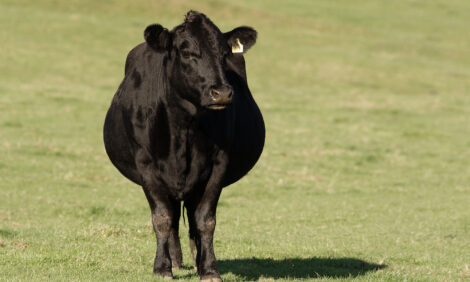



European Parliament Calls for Crack Down on Food Fraud
EU - European Members of Parliament have called on European countries to fix penalties for food fraud at at least twice the economic gain the fraudster gets from the crime.They have also called for criminal law penalties for cases of fraud where public health is put in danger.
The European Parliament said that recent food fraud cases, including the sale of horse meat as beef, should prompt the EU to review the functioning of the food production chain.
The parliament called for checks to be stepped up and labelling legislation revised.
The calls for change have been put forward in a non-legislative resolution that was approved by the parliament this week.
The European Parliament voiced concern at the growth in food fraud, which it says exploits structural weaknesses in the production chain.
MEPs argue that food fraud risks are aggravated by the complexity and cross-frontier nature of this chain, coupled with the essentially national nature of inspections, penalties and enforcement measures.
Recent food fraud cases include horse meat sold as beef, road salt sold as food salt, the use of alcohol containing methanol in spirits, dioxin-contaminated fats discovered in animal feed, labels that state the wrong species of fish and the mislabelling of seafood.
“The first problem is a lack of comparable data, which means that it is difficult to get an exact picture of the problem. (...) However, we know that we are talking about billions of euros here. Organised crime is clearly getting interested in this,” said rapporteur Esther De Lange (EPP, NL) (pictured).
“Unlike the US, the European Union still has no common definition of ‘food fraud’, which has long been a blind spot of European institutions.
“Food fraud cases are the rotten apples that spoil matters for all those farmers, intermediaries and individuals who do respect the rules and destroy consumer confidence in food and food information,” she added.
Her own-initiative report was approved by 659 votes to 24, with eight abstentions.
DNA Tests and Stating Country of Origin
The text calls for an EU-wide harmonised definition of food fraud and calls on the European Commission to strengthen the EU Food and Veterinary Office (FVO), which carries out inspections.
It also calls for the establishment of a European network to combat food fraud and proposes that DNA tests should be used more widely, to eliminate any species fraud.
MEPs call for more thorough inspections of frozen foodstuffs and for a draft law to make labelling mandatory for meat and fish.
Traceability would be improved by making it mandatory to state the country of origin, they observe, including for all meat-based processed products.
Dissuasive Penalties
MEPs consider that EU member states should fix food fraud penalties of at least twice the estimated economic gain sought by the fraudster, and criminal law penalties for cases in which fraud endangers public health.
Call for Moratorium on North American Horse Meat Imports
Meanwhile, the Humane Society International has renewed calls for the European Union to issue a moratorium on the import and sale of North American horse meat.
The move follows the adoption of Esther De Lange’s report, "The food crisis, fraud in the food chain and the control thereof."
About 20 per cent of horsemeat sold in the EU is exported from Canada and Mexico, but a significant proportion of this derives from horses born and raised in the United States.
These animals are routinely treated with veterinary drugs banned in the EU for use in food producing animals.
Despite audits from the European Commission’s Food and Veterinary Office in Canada and Mexico concluding that measures implemented in those countries are wholly inadequate to preclude meat from horses treated with such drugs from the food chain, North American-derived horsemeat continues to be imported to the EU for human consumption.
Joanna Swabe, HSI’s EU Director, said: “During the past three years, Humane Society International has repeatedly raised concerns that the Commission has turned a blind eye to a series of FVO audits in Canada and Mexico.
“The FVO found that safety measures in both countries to meet EU horsemeat import requirements are fundamentally flawed.
“It has unequivocally stated that it is impossible to verify the reliability and veracity of veterinary treatment history statements for US origin horses.
“Nevertheless this horsemeat continues to be placed on the EU market to this day.
“It beggars belief that the Commission has consistently ignored the findings of its own veterinary inspectorate, and we are pleased to see the Parliament taking the Commission to task.
“We urge the Commission to act now and exclude from the EU food chain horsemeat from North America or any other country that does not meet EU import requirements.”



